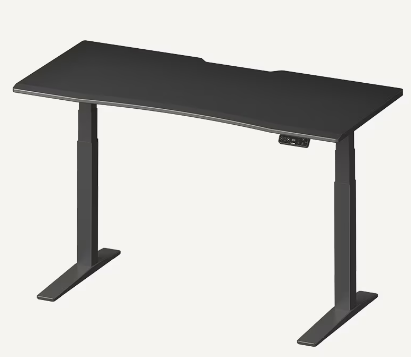A 10-Point Checklist All First-Time Homebuyers Should Follow

Buying your first home is an exciting milestone, but it can also be a daunting and overwhelming process. With so many factors to consider and decisions to make, it’s easy for first-time homebuyers to feel lost or make costly mistakes. To help you navigate the homebuying process with confidence and success, we’ve put together a comprehensive 10-point checklist that all first-time homebuyers should follow.
1. Determine your budget and saving goals
Before you start shopping for homes, it’s crucial to have a clear understanding of your financial situation and how much you can realistically afford to spend on a home. This involves taking a close look at your income, expenses, debts, and assets, and determining how much you can comfortably allocate towards a mortgage payment each month.
It’s also important to consider the upfront costs of buying a home, such as the down payment, closing costs, and moving expenses. As a general rule, aim to save at least 20% of the purchase price for your down payment to avoid paying private mortgage insurance (PMI) and to qualify for better interest rates.
To determine your budget and saving goals, consider the following steps:
- Track your monthly income and expenses to get a clear picture of your cash flow
- Set a realistic timeline for saving your down payment and other upfront costs
- Consider ways to boost your income or reduce your expenses to accelerate your savings
- Pay down high-interest debt, such as credit card balances, to improve your debt-to-income ratio
- Work with a financial planner or mortgage professional to create a personalized home buying budget and plan
2. Check and improve your credit score
Your credit score is one of the most important factors that lenders consider when evaluating your mortgage application. A higher credit score can help you qualify for better interest rates and loan terms, while a lower score can make it harder to get approved or result in higher borrowing costs.
Before you start the home buying process, check your credit report and score with all three major credit bureaus (Equifax, Experian, and TransUnion). Review your report for any errors or inaccuracies, and dispute them if necessary. If your score is lower than you’d like, take steps to improve it, such as:
- Paying all your bills on time
- Reducing your credit utilization ratio
- Keeping old credit accounts open to maintain a longer credit history
- Avoiding opening new credit accounts or making large purchases before applying
3. Get pre-approved for a mortgage
Getting pre-approved for a mortgage is one of the most important steps you can take as a first-time homebuyer. A pre-approval is a formal letter from a lender that states the amount they are willing to lend you based on your financial information, such as your income, credit score, and debt-to-income ratio.
Having a pre-approval letter in hand when you start shopping for homes can give you several advantages, such as:
- Knowing exactly how much you can afford to spend on a home
- Demonstrating to sellers that you’re a serious and qualified buyer
- Giving you more negotiating power when making an offer
- Speeding up the closing process once you find the right home
To get pre-approved, you’ll need to provide your lender with various financial documents, such as pay stubs, tax returns, bank statements, and proof of assets. Your lender will also run a credit check and verify your employment and income.
4. Choose the right real estate agent
Working with a skilled and experienced real estate agent can make a huge difference in your home buying experience, especially as a first-time buyer. A good agent will guide you through the process, help you find homes that meet your criteria, negotiate on your behalf, and ensure that all the necessary paperwork and legal requirements are met.
When choosing a real estate agent, look for someone who:
- Has experience working with first-time homebuyers in your target area
- Understands your budget, needs, and preferences
- Communicates clearly and regularly with you throughout the process
- Has a proven track record of success and positive reviews from past clients
- Is affiliated with a reputable brokerage and has access to a wide range of listings and resources
Don’t be afraid to interview several agents before making a decision, and choose someone who you feel comfortable working with and trust to have your best interests in mind.
5. Determine your must-haves and deal-breakers
Before you start actively searching for homes, it’s important to have a clear idea of what you’re looking for in a property. This includes both your must-haves (features that are non-negotiable) and your deal-breakers (features that would automatically disqualify a home from consideration).
Some common must-haves for first-time homebuyers might include:
- A specific number of bedrooms and bathrooms
- A certain amount of square footage or lot size
- A particular style of home (e.g., single-family, townhouse, condo)
- A certain school district or proximity to work or amenities
- Specific features like a garage, backyard, or updated kitchen
Some common deal-breakers might include:
- A home that requires extensive repairs or renovations
- A location that’s too far from work, school, or family
- A neighborhood with high crime rates or poor school ratings
- A home that’s over your budget or has high monthly maintenance fees
By having a clear list of your must-haves and deal-breakers, you can narrow down your search and avoid wasting time on properties that don’t meet your criteria.
6. Attend open houses and schedule private showings
Once you’ve identified some homes that meet your criteria, it’s time to start attending open houses and scheduling private showings with your real estate agent. This is your opportunity to see the homes in person, get a feel for the layout and condition, and imagine yourself living in the space.
When attending open houses or showings, be sure to:
- Take notes and photos to help you remember each property
- Ask questions about the home’s history, condition, and any recent upgrades or repairs
- Pay attention to the surrounding neighborhood and any potential red flags, such as noisy streets or poorly maintained properties
- Trust your instincts and don’t be afraid to cross a home off your list if it doesn’t feel right
7. Make a competitive offer
When you find a home that you love and meets your criteria, it’s time to make an offer. Your real estate agent will help you determine a fair and competitive offer price based on factors like the home’s condition, comparable sales in the area, and the current market conditions.
In addition to the price, your offer should also include contingencies that protect your interests as a buyer, such as:
- An appraisal contingency that ensures the home appraises for at least the purchase price
- A financing contingency that makes the sale dependent on your ability to secure a mortgage
- A home inspection contingency that allows you to back out of the deal if major issues are found during the inspection
Your agent will present the offer to the seller’s agent and negotiate on your behalf if there are any counter-offers or requests for concessions.
8. Get a thorough home inspection
Once your offer is accepted, it’s crucial to get a thorough home inspection to identify any potential issues or safety hazards with the property. A home inspector will examine the home’s structure, systems, and components, and provide you with a detailed report of their findings.
If the inspection reveals any major issues, such as a failing roof or foundation problems, you may be able to negotiate with the seller to have them repaired or to reduce the purchase price accordingly. If the issues are too severe or the seller is unwilling to address them, you may need to walk away from the deal.
9. Review and sign the closing documents
As you approach the closing date, your lender and title company will provide you with a stack of legal documents to review and sign. These documents will outline the final terms of your mortgage, including your interest rate, monthly payment, and any fees or closing costs.
Be sure to review these documents carefully and ask questions about anything you don’t understand. Your real estate agent and lender should be able to guide you through the process and explain any confusing terms or clauses.
10. Perform a final walk-through and close on your new home
Before you sign the final papers and get the keys to your new home, it’s important to perform a final walk-through of the property. This is your chance to ensure that any agreed-upon repairs have been made and that the home is in the same condition as when you last saw it.
If everything looks good, it’s time to close on your new home. You’ll sign the final paperwork, pay any remaining closing costs and fees, and officially become a homeowner.
Congratulations!
Buying your first home is a huge accomplishment and a milestone to be celebrated.
By following this 10-point checklist and working with trusted professionals, you can navigate the process with confidence and make smart decisions that set you up for long-term success as a homeowner.
Owning a home is a big responsibility, but it’s also an incredible opportunity to build wealth, create a sense of stability and security, and make a space that truly feels like your own.
With the right preparation, mindset, and support, you can achieve your homeownership dreams and start this exciting new chapter in your life.







